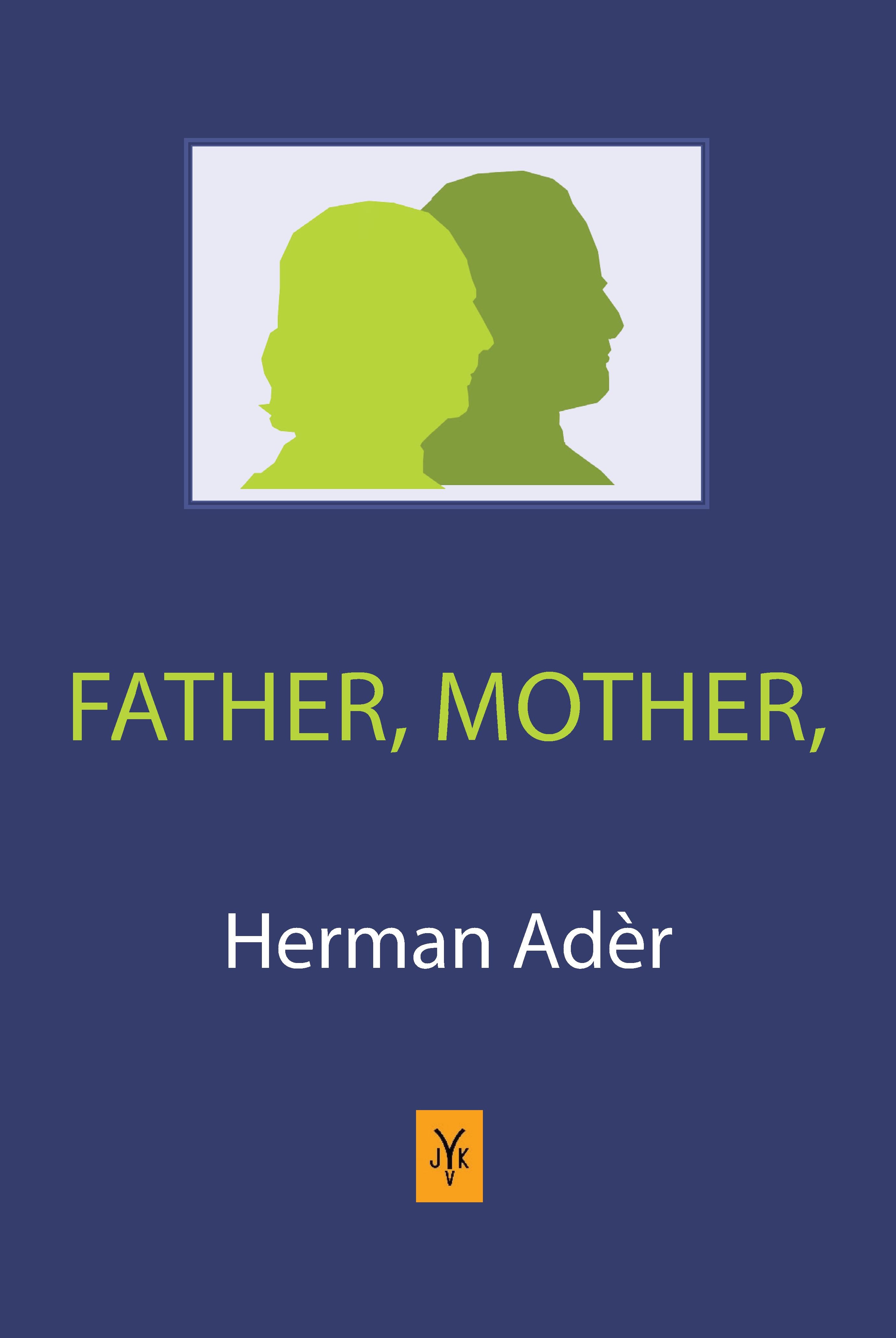
(ISBN: 978-90-79418-62-6)
The English translation of Herman Adèr’s
novella Vader, Moeder, is now available
as an e-Book. It costs € 5.- ($ 5.60).
To order, click:
e-Book — iBook — Kindle
For a demo copy of the e-Book, click
In the Vrolikstraat.
In this novella from Herman Adèr, the autobiographical elements are more obvious than in his previous novellas and stories. Yet, the first-person narrator is nowhere centre stage, the father and the mother remain the main characters all along. However, this detached manner of writing emphasizes how very evocative various scenes are. It could be said that the novella deals with Death. With the sudden death of the father, and with the slow, painful deterioration of the mother into her dementia, followed by death. Yet it is not a sad novella. This is caused by the indestructible cheerfulness that the mother possesses, which never leaves her, not even at the end of her life, when she hardly recognizes anyone and her world becomes ever more limited. It is as if people near her suffer more in the end than she does herself. The novella ‘Father, mother,’ is translated from the Dutch novella ‘Vader, Moeder’, also published by Johannes van Kessel.
With a drive we didn’t know she possessed, my mother, as soon as she had finished washing and dressing father, started making phone calls: the doctor, the minister and us, the children.
Because we could not get there soon enough, we could not prevent that mother, following the undertaker’s advice, had father placed on a bier in the room where he had died.
Since the days were getting warmer, it had been necessary to place the coffin in a cooler, the fan of which gave off a continuous whirr and even at some moments, quite suddenly, rattled loudly. You had to speak quite loudly to get over all that noise.
Tranquil, loving attention was not really possible under those conditions (However, my eldest sister and I did not feel that kind of attention anyway, which suited us. It was our mother we mainly loved. It was not until much later that we began to realise that father had spent a major part of his life in controlling mother’s unfocussed generosity and her accommodating, laissez-fare approach to our upbringing. She always let us have our own way, except when father intervened, when it got out-of-hand.
I have to add that for my younger sister, the situation was quite different: she really loved him, and understood more than us elder siblings his incessant struggle with the three inseparable friends Melancholy, Sadness and Loneliness.)
With the imperturbable cheerfulness, that would always remain part of mother, she proudly displayed father’s dead body to everyone who came to offer their condolences. Besides the family, that included really all the village.
Most people did not know how to respond, except for a few curious old men, who were in the habit of going to all funerals for miles around, looking for excitement and free coffee and cake.
As we are not a religious family, my father was laid in state without any candles or crosses, and so very different from local custom. There was not even a minister in the bedroom to offer prayers to support my grieving mother. She did not even appear to be grieving that much (In those last months before his death, I think we not only neglected my father but also my mother. Since she was well into her eighties, that last period must have been hard, plodding along with Father.)
My nine-year-old cousin, who arrived later together with my brother-in-law, found it creepy to see grandfather lying there, his chin supported by a small stick which the undertaker had put there to keep his mouth from falling open. He did not really dare to look, and hid his small face fearfully in my brother-in-law’s red jacket.
My niece did have the courage to look, but after careful observation, she burst into tears. We had trouble understanding: “But this isn't grandfather anymore.” And she was right: father’s face now was waxy pale, and it was distorted into a strange grimace, in which his habitually embarrassed smile was no longer recognizable.
Thus, mother’s cheerfulness was understandable: She did not present her beloved, recently deceased husband, she presented an object of interest to the people. And an object of interest it was, on this the villagers agreed, although they did not express themselves in this manner, because the standard protocol for this kind of situation does not provide for it.
